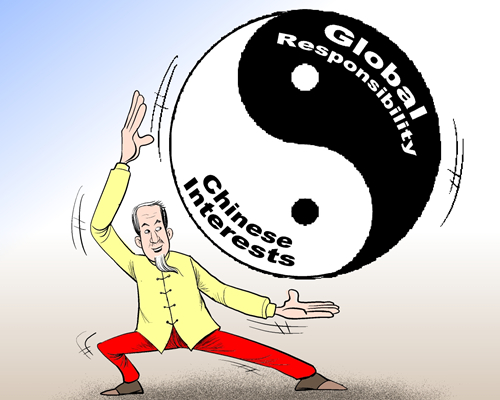1914 - A significant centenary?
- By Tim Collard
 0 Comment(s)
0 Comment(s) Print
Print E-mail China.org.cn, February 5, 2014
E-mail China.org.cn, February 5, 2014
|
|
|
Chinese Kung Fu [By Jiao Haiyang/China.org.cn] |
We would know by now that there is not much point in making direct comparisons between the way things happen in Europe and in East Asia. There are simply too many historical, geographical and cultural differences. And yet, whenever the chance arises, through some coincidence of dates and circumstances, historians, and especially journalists, are quick to build an edifice of speculative thought and argument out of which good stories and clever comments can be made.
This year Europe, in particular, commemorates the outbreak of what we call World War I. In its immediate aftermath we called it the Great War; but when it was followed after only 20 years by an even "greater" and more terrible war, both wars were subsequently arranged in chronological order, First and Second. Nonetheless, despite the First being called a World War, it does not possess much resonance in China.
China in 1914 was in a sorry condition, trying to reorganize herself after the overthrow of its last Imperial dynasty, partly occupied by Western countries and under pressure from a resurgent Japan. So China played no part in the war and it hardly figures in the Chinese consciousness. Yet now, some bright sparks in the European media have taken to drawing comparisons between the geopolitics of 1914 and 2014, in which China assumes the place occupied by Imperial Germany 100 years ago.
The comparison works as follows: Germany under Kaiser Wilhelm II was a fast-growing industrial power, but one without a clearly accepted role in its region. (The unification of Germany, masterminded by Bismarck, had only been completed in 1871.) The dominant powers of Europe for most of the century had been Britain, France and Russia, and Germany was keen to lay claim to equal status, especially after having comprehensively defeated France in the war of 1870. In a phrase current at the time, Germany was demanding her "place in the sun."
There are parallels to be drawn here: China, though not only recently unified as Germany had been, had been prevented by the upheavals of the 20th century from playing a role in the region and the world commensurate with her size. Now China, like Wilhelm's Germany, has made rapid progress towards economic success and geopolitical significance and has similarly not quite worked out an appropriate and generally accepted geopolitical role. Also, as it did in early 20th century Germany, there exists in China a widespread sense of grievance, a feeling that the nation is not getting quite the respect she deserves from the rest of the world.







Go to Forum >>0 Comment(s)